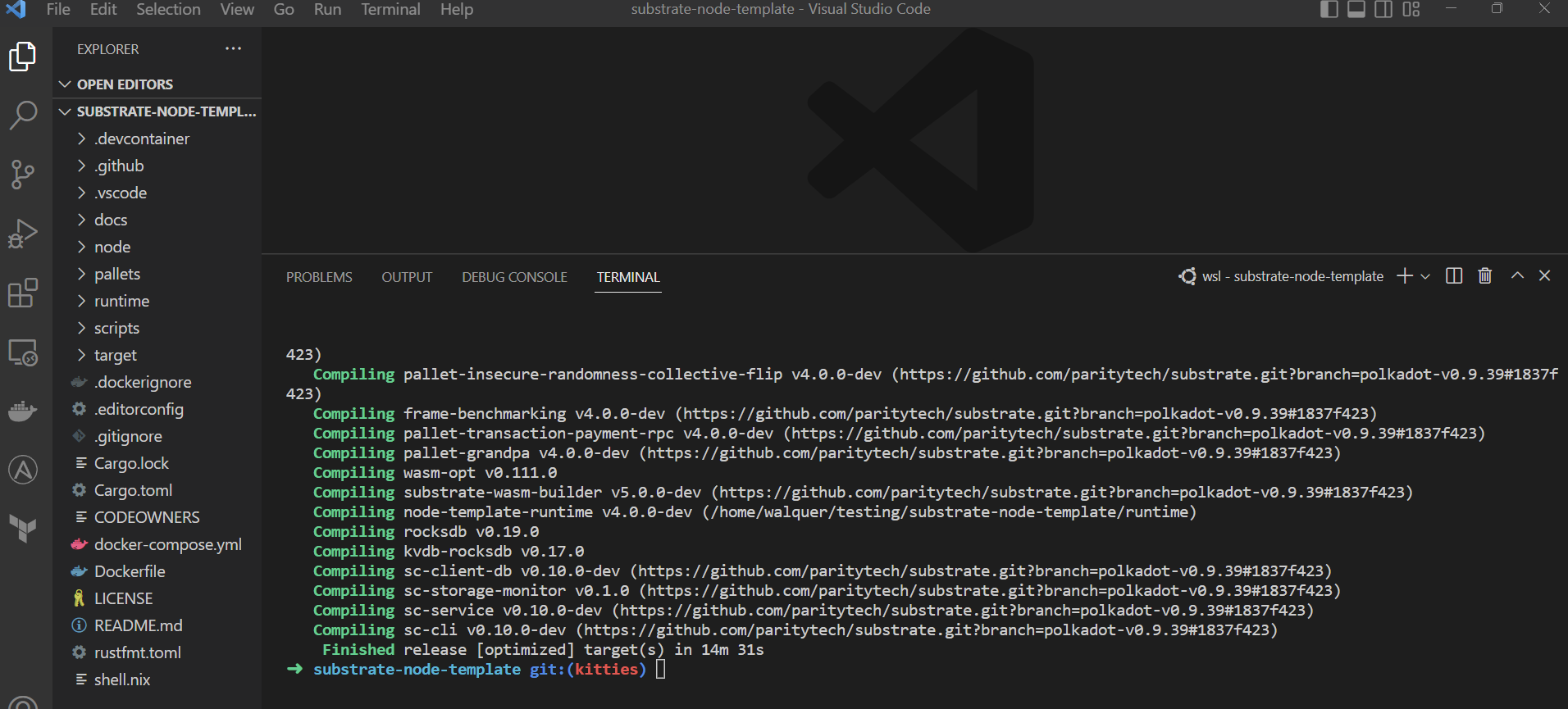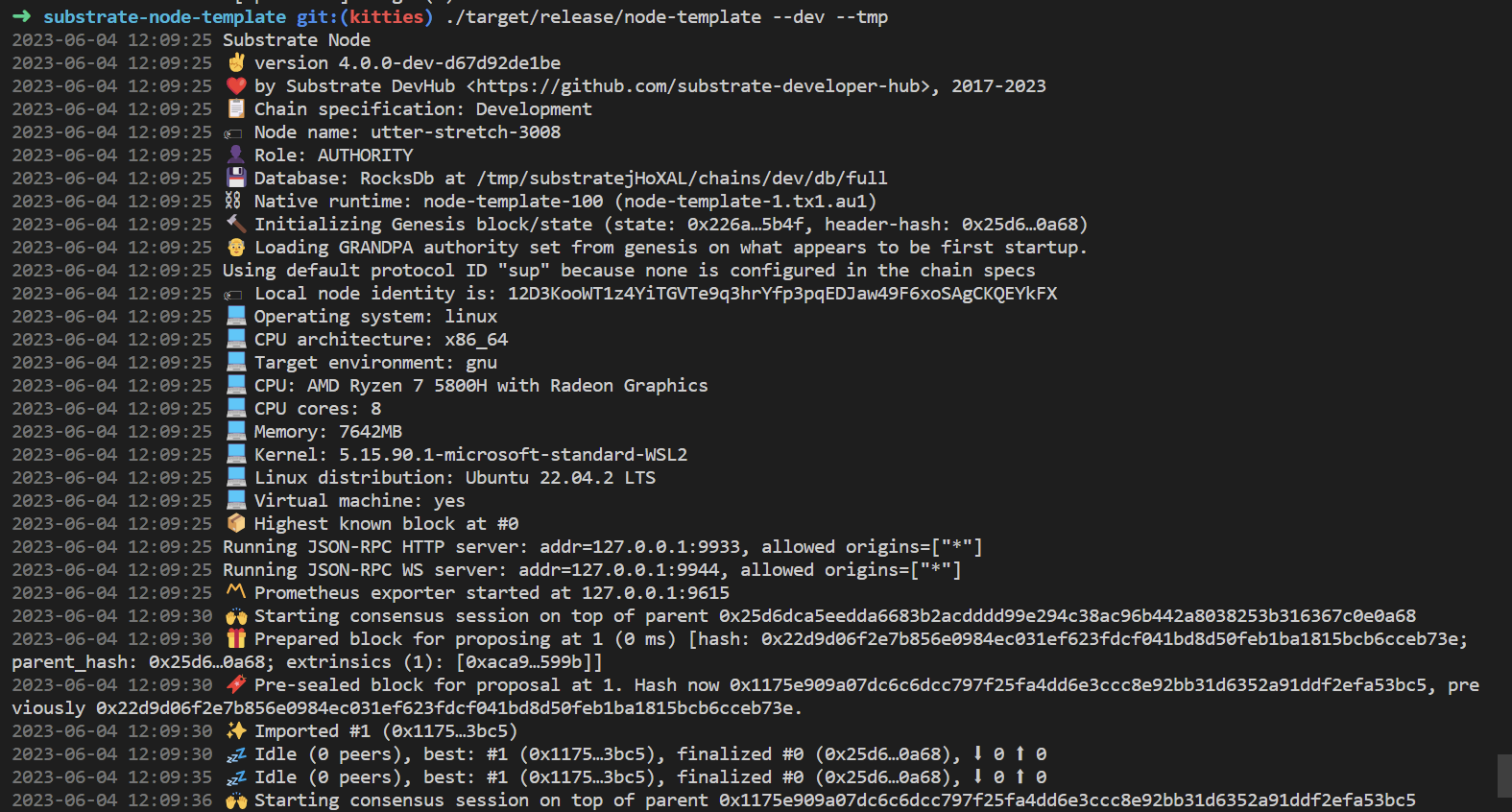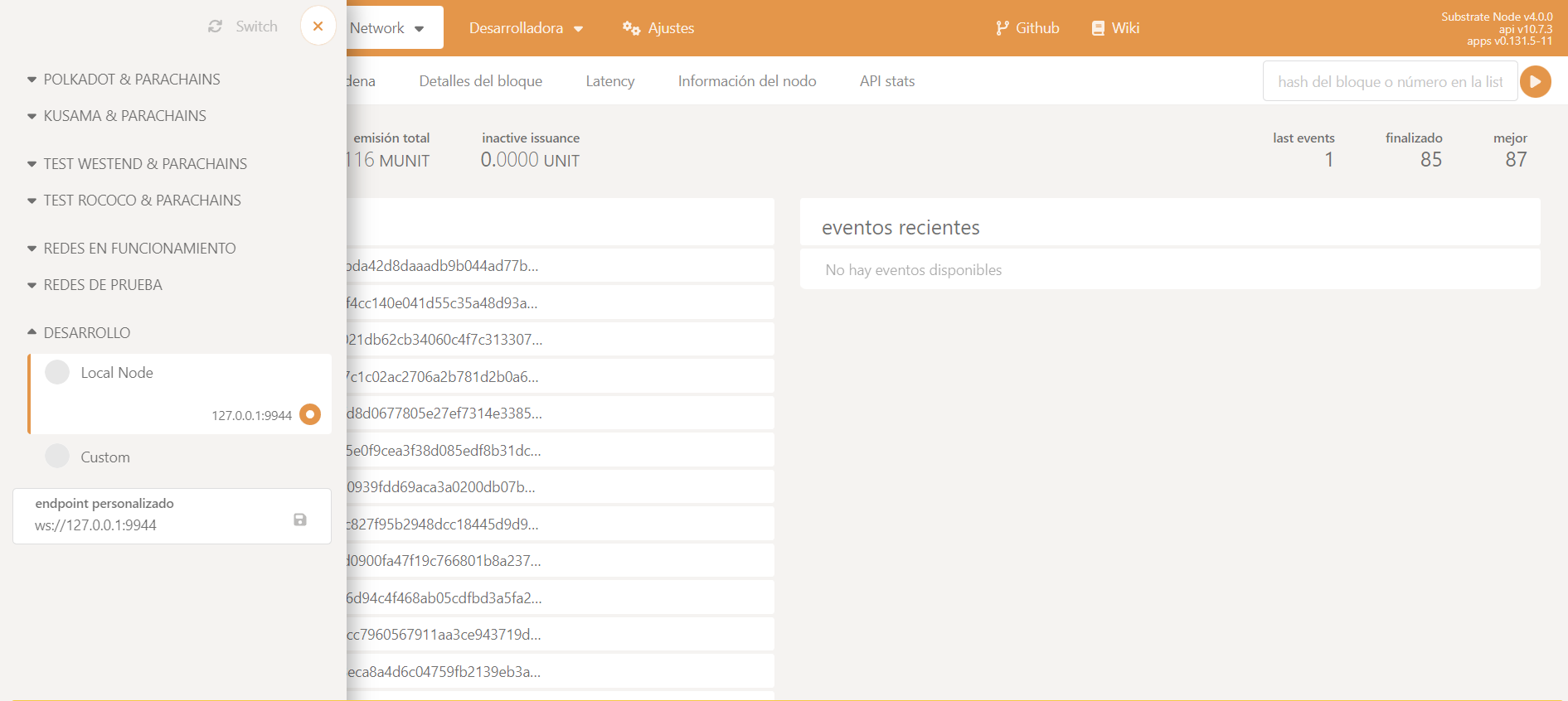Node Template Set Up
Before we can start minting Kitties, we need to do some groundwork. This part covers the patterns involved with using the Substrate Node Template.
Pre-requisites
First you need to have rust installed and configured for Substrate development. Do it as described here depending on your OS.
The template node
The Substrate Node Template provides us with an "out-of-the-box" blockchain node. Our biggest advantage in using it are that both networking and consensus layers are already built and all we need to focus on is building the logic of our runtime and pallets.
We have to clone the Substrate Node Template repository, compile it and run it. We will be working with node template v0.9.39.
git clone -b polkadot-v0.9.39 https://github.com/substrate-developer-hub/substrate-node-template.git
Create a new branch for your project and switch to it. So to be able to keep the original template code in case we get lost in the changes.
In the following command we are naming the branch as kitties:
git checkout -b kitties
To compile, do the following. This will take a while. How long it takes depends on your machine specs.
cargo build --release

As you can see in the previous image, the compilation should complete with a line that looks like this:
Finished release [optimized] target(s) in 14m 31s
To run the node, use the following command, in the same directory where you ran the build command:
./target/release/node-template --dev

Here we are executing the node binary and passing it the --dev argument. This tells the node to run in development mode ensuring that you have a clean working state any time you stop and restart the node. You can stop the node by pressing Ctrl+C.
Interacting with the node template
Now is a good moment to play for a while with the node. Use the Polkadot JS Apps UI to connect to your local node by going to polkadot.js Apps UI. It should be configured to connect to you local node by default. But if not, make sure it looks like this if you click on the upper left corner of the page:

Interact with your local node. In special, go to:
Developer -> Extrinsics
There you can see all the extrinsics that are available in your node by pallet. Check that the pallet template (you will find it as templateModule) has only two extrinsics.
do_somethingcause_error
do_something stores a u32 value in the runtime storage. Try setting a value by submiting the extrinsic.
And then checking the value in the storage.
To check the value in the storage, go to:
Developer -> Chain State
There select the TemplateModule and the Something(): Option<u32> item storage. Click in the + sign on
the right to query it.

Also check the code in the pallet template. You can find it in the pallets folder. See how the code of the
extrinsic you just called looks like. In the directory where you compiled the node go to check the
pallets/template/src/lib.rs file.
There you can find the storage code:
// The pallet's runtime storage items.
// https://docs.substrate.io/main-docs/build/runtime-storage/
#[pallet::storage]
#[pallet::getter(fn something)]
// Learn more about declaring storage items:
// https://docs.substrate.io/main-docs/build/runtime-storage/#declaring-storage-items
pub type Something<T> = StorageValue<_, u32>;
And the extrinsics code:
/// An example dispatchable that takes a singles value as a parameter, writes the value to
/// storage and emits an event. This function must be dispatched by a signed extrinsic.
#[pallet::call_index(0)]
#[pallet::weight(10_000 + T::DbWeight::get().writes(1).ref_time())]
pub fn do_something(origin: OriginFor<T>, something: u32) -> DispatchResult {
// Check that the extrinsic was signed and get the signer.
// This function will return an error if the extrinsic is not signed.
// https://docs.substrate.io/main-docs/build/origins/
let who = ensure_signed(origin)?;
// Update storage.
<Something<T>>::put(something);
// Emit an event.
Self::deposit_event(Event::SomethingStored { something, who });
// Return a successful DispatchResultWithPostInfo
Ok(())
}
With this you can start getting a feeling of how you can store a value in the runtime storage and how you can create an extrinsic to do it.